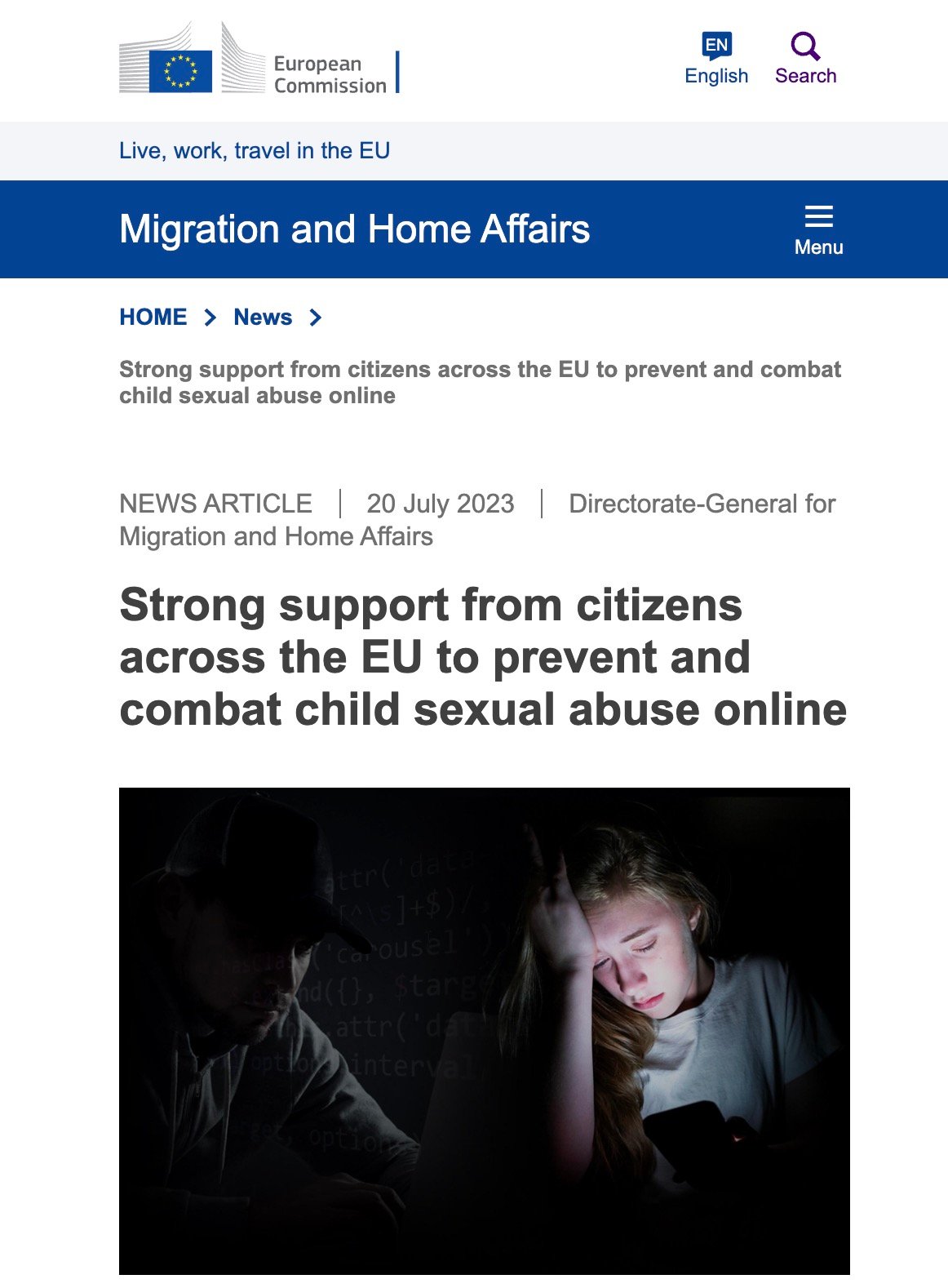Recent findings from a poll conducted by the EU Department of the Interior DG Home via the Eurobarometer platform have drawn criticism for their alleged manipulation of public opinion in favor of total chat control. Advocates for privacy, such as European MEP Patrick Breyer, claim that the presented results do not truly represent the desires of the EU populace.
The crux of the controversy revolves around the nature of the questions posed to the respondents. The poll primarily inquired whether automatic detection of online child sexual abuse content should be mandatory—a proposition that a large majority of respondents endorsed. However, privacy proponents argue that these queries were misleading, as respondents weren’t clearly informed that the proposed measures included the universal scrutiny of private messages via fallible algorithms, and effectively end privacy for all.

One key question revolved around whether service providers should identify child sexual abuse material and grooming conversations when there’s a significant risk of such occurrences on a given platform. The phrasing of this query was criticized for subtly insinuating that such detection could be perfectly accurate, devoid of any false positives. In reality, as much as 80% of machine-flagged private messages and images are found to be non-incriminating, thus revealing the misleading nature of the question.
This manipulation was further exposed when, in an independent survey, respondents were explicitly asked whether they would endorse their private messages being examined unsolicitedly for dubious material, given the high probability of false positives. A staggering 72% opposed this invasive notion.
The critics also point out that the poll’s question about “a particular platform” was manipulative, as the chat control could potentially affect any platform. The alarmist tone adopted in a question regarding the support for proposed chat control regulation was also singled out, with critics arguing that the implication that voluntary chat control could become illegal was unfounded and a clear case of fear-mongering.
Further, the survey completely overlooked critical elements of the proposal, like the potential barring of individuals under the age of 16 from installing the majority of apps. When a separate survey was conducted focusing on young people’s views on this matter, it was met with overwhelming disapproval.
The poll’s dissemination is being regarded by critics as an “information war on digital privacy of correspondence,” spearheaded by the Home Affairs Commissioner Ylva Johansson. Advocates for privacy assert that the responsibility now lies with the public to counteract this government propaganda through consistent educational efforts about the truth of chat control.






















